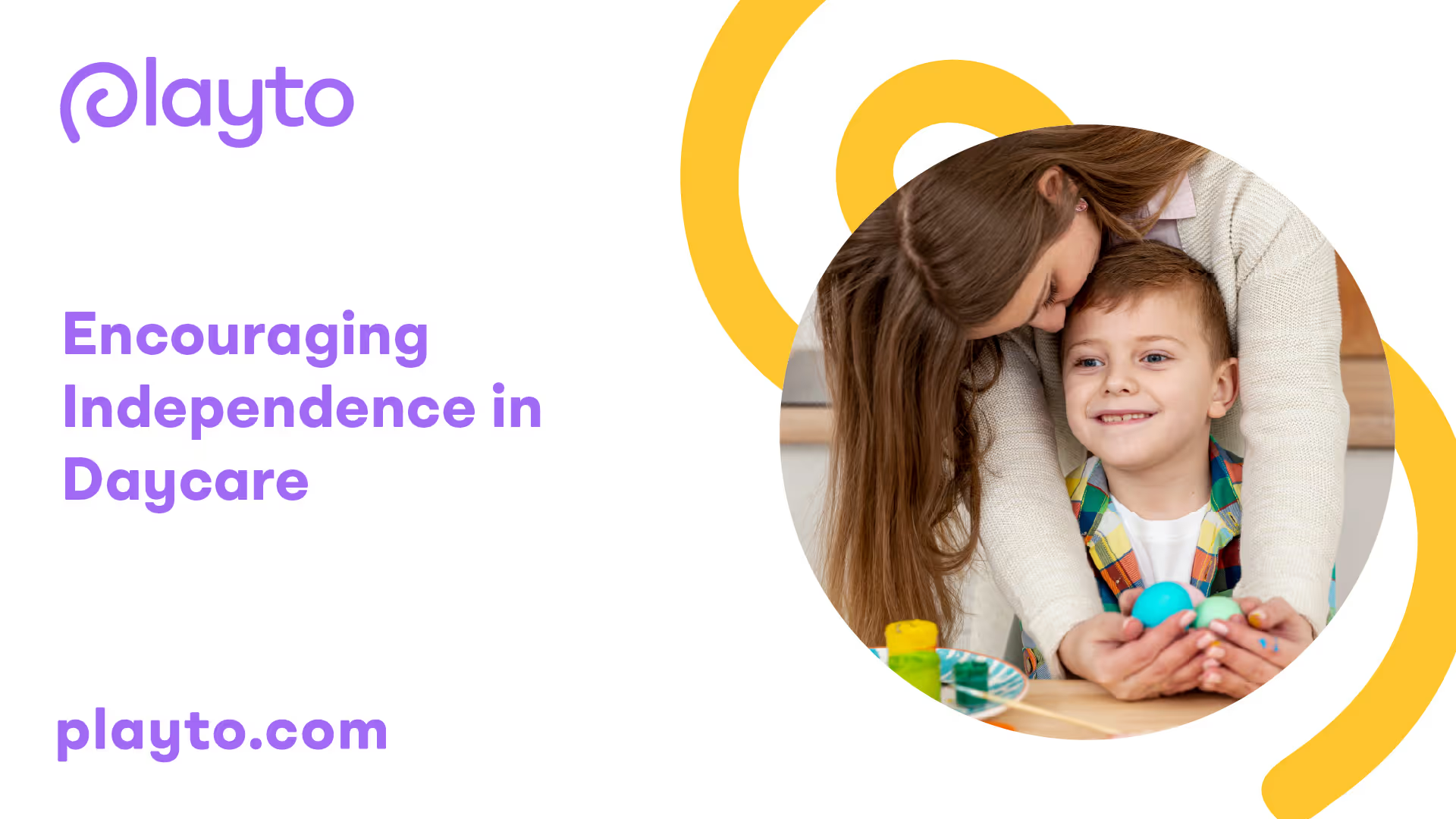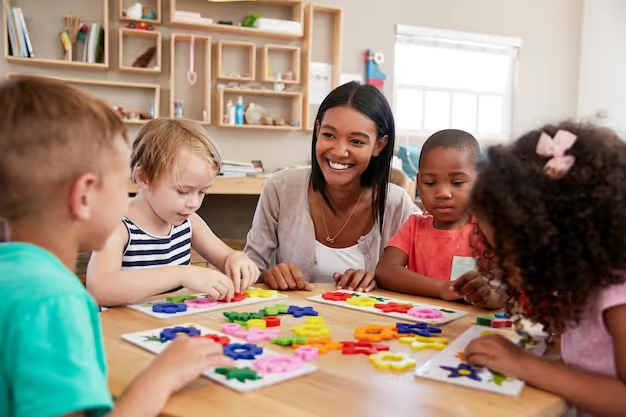
Fostering Independence in Daycare
In a daycare setting, fostering independence in children is not only beneficial for their personal growth but also contributes to their overall development. Encouraging independence helps children build confidence, resilience, and a strong sense of self-belief. There are several strategies that daycare providers can implement to promote independence among children.
Building Confidence and Resilience
Allowing children to take on tasks and responsibilities helps build their confidence and self-esteem. When children are given the opportunity to complete tasks independently, such as putting on their shoes or tidying up after playtime, they develop a sense of control and ownership over their actions. Involving children in daily routines and activities, even if it adds extra steps, can be beneficial for building independence and providing opportunities for learning new skills.
By establishing a consistent routine, children can anticipate their day and gradually take on more steps of the routine over time. This allows them to develop a sense of responsibility and independence as they become more capable of completing tasks with less assistance [2].
Providing Choices for Empowerment
Giving children choices is another effective way to foster independence and empower them. Providing options and praising their ability to make choices allows children to exercise their autonomy and assert their preferences. Simple choices such as deciding what to wear or play can support their independence and help them develop decision-making skills. When children are encouraged to make choices, it nurtures their independence and strengthens their confidence, especially when they insist on doing things their way.
By offering age-appropriate choices, daycare providers encourage children to develop their own preferences and take ownership of their decisions. This not only promotes independence but also fosters critical thinking and problem-solving skills.
By focusing on building confidence, resilience, and providing choices for empowerment, daycare providers can create an environment that encourages independence among children. This approach lays a strong foundation for their personal growth and prepares them for future challenges.

Encouraging Independence in Toddlers and Twos
During their early years, toddlers and twos are at a critical stage of development where they begin to assert their independence. As a daycare provider, it is important to create an environment that fosters their independence and allows them to explore their abilities. This can be achieved through developing self-help skills and empowering them through decision-making.
Developing Self-Help Skills
Toddlers and twos are capable of performing various self-help skills, which not only help them become more independent but also build their confidence and self-esteem. Encouraging them to participate in age-appropriate tasks can be empowering and contribute to their overall development. Some examples of self-help skills that can be encouraged in daycare include:
- Carrying their own lunch boxes
- Putting away toys after playtime
- Placing their shoes by the door
- Assisting with simple chores like putting clean laundry into drawers
By allowing toddlers and twos to take part in these tasks, they gain a sense of accomplishment and independence. It is important to provide guidance and support, allowing them the time they need to complete these tasks on their own [3].
Empowering Through Decision-Making
Offering choices to toddlers and twos is an effective way to empower them and encourage their independence. Simple decisions, such as picking out pajamas, selecting healthy snacks, or choosing play activities, can give them a sense of control over their environment [3]. When children are given the opportunity to make decisions, it allows them to develop their decision-making skills, build confidence, and feel a sense of ownership over their choices.
As a daycare provider, you can facilitate decision-making by presenting limited options that are appropriate for their age and development. For example, you can ask them to choose between two books for storytime or offer a selection of healthy snacks for them to choose from. By involving toddlers and twos in decision-making, they feel valued and are more likely to engage actively in their daily activities.
Engaging with toddlers and twos through interactive activities like tearing lettuce, breaking uncooked pasta, singing, and reading favorite books can enhance their independence and interaction skills. These activities not only promote their physical development but also encourage their curiosity and independence.
Creating a routine, even without specific times, can also contribute to the development of independence in toddlers and twos. Establishing a consistent daily routine helps them know what to expect next, reducing surprises and tantrums. This predictability gives them a sense of control and allows them to anticipate and prepare for each activity.
By actively promoting self-help skills and decision-making opportunities, daycare providers can play a vital role in nurturing the independence of toddlers and twos. These skills lay the foundation for their future growth and development, fostering their confidence and sense of autonomy.

Structured Environment in Daycare
In a daycare setting, a structured environment plays a vital role in fostering children's development and encouraging independence. A well-designed and organized environment provides opportunities for social skill development and emotional resilience building.
Social Skill Development
Daycare provides a structured environment for children to interact with their peers, fostering the development of essential social skills. Through play and group activities, children learn to share, communicate, and collaborate, laying the foundation for healthy relationships in their future.
Educators in daycare centers often create spaces that promote children's sense of community and connection with others. By planning and utilizing spaces to encourage interaction and engagement, children have the opportunity to develop their social skills. These spaces may include designated areas for cooperative play, group projects, and interactive games.
Structured activities, both large-group and small-group, initiated by teachers, further support social skill development. Large-group activities help children develop early literacy skills, attention, and behavioral control. These activities should be kept short, ideally 15 to 20 minutes or less, to optimize learning outcomes. Small-group activities provide a personalized setting for focusing on important learning goals, promoting active engagement, and providing opportunities for children to interact with peers and receive individual attention from the teacher.
Emotional Resilience Building
A structured environment in daycare also contributes to emotional resilience building. Consistent routines and schedules help children feel secure and create a sense of predictability, allowing them to develop self-regulation skills. Establishing daily routines through a basic schedule in preschool classrooms can help ensure consistency for young children and encourage all areas of development by planning a wide range of activities. Flexible schedules allow for capitalizing on children's interests and extending play periods for maximum satisfaction [7].
In daycare, educators create an environment that promotes positive self-image and emotional well-being. By providing a safe and nurturing space, children feel supported and encouraged to express their emotions. Through daily interactions and guidance from caregivers, children learn to identify and manage their emotions, developing emotional resilience.
By providing a structured environment in daycare, children have the opportunity to develop essential social skills and build emotional resilience. The combination of social skill development and emotional resilience building sets a strong foundation for children's overall development and prepares them for future educational experiences.
Educational Stimulation in Daycare
To promote the development of children in daycare, it is essential to provide them with educational stimulation. Quality daycare programs often incorporate cognitive development activities that enhance problem-solving skills, language development, and overall cognitive abilities. This section will explore two key aspects of educational stimulation in daycare: cognitive development activities and the promotion of self-help skills and responsibility.
Cognitive Development Activities
Daycare centers often design activities that stimulate cognitive development in children. These activities aim to engage children's minds, encourage critical thinking, and foster a love for learning. Some examples of cognitive development activities in daycare include:
- Storytelling: Reading and storytelling sessions help children develop language skills, expand their vocabulary, and enhance their imagination.
- Problem-solving games: Puzzles, sorting activities, and other problem-solving games encourage children to think critically and develop their problem-solving abilities.
- Sensory play: Engaging children in sensory play activities, such as exploring different textures and materials, helps stimulate their senses and supports cognitive development.
By providing a variety of cognitive development activities, daycare programs create a nurturing environment that fosters intellectual growth and prepares children for future academic success.
Self-Help Skills and Responsibility
Daycare plays a crucial role in nurturing a child's independence and self-help skills. Encouraging children to perform tasks independently, such as picking up toys and washing hands before meals, instills a sense of responsibility. These self-help skills contribute to a child's growing confidence and sense of autonomy.
In daycare, educators provide guidance and support as children learn to do things on their own. They teach self-help skills such as dressing themselves, using the bathroom independently, and tidying up after playtime. By mastering these skills, children gain a sense of accomplishment and develop a positive self-image.
Furthermore, daycare programs emphasize the importance of responsibility by assigning age-appropriate tasks to children. For example, children may be responsible for taking care of their personal belongings or helping with classroom chores. These responsibilities promote a sense of ownership and contribute to a child's understanding of their role within a community.
By focusing on self-help skills and responsibility, daycare programs foster independence and nurture the development of confident and responsible individuals.
Educational stimulation in daycare encompasses cognitive development activities and the promotion of self-help skills and responsibility. By incorporating these elements into their programs, daycares create an environment that supports children's intellectual growth, independence, and overall development.
Preparation for Schooling
In daycare, one of the key goals is to prepare children for their future academic journey. By fostering independence and curiosity, daycare can lay a strong foundation for children's familiarity with learning environments and their development of a passion for learning.
Familiarity with Learning Environments
Attending daycare serves as valuable preparation for formal schooling. It provides children with the opportunity to become familiar with a structured learning environment, setting a positive tone for their academic journey. Research indicates that preschool children who have experienced daycare are more likely to adapt well to the routines and expectations of school life. Through daily routines, such as circle time and transitioning between activities, children develop an understanding of the expectations and structure of a classroom environment.
Curiosity for Learning Development
Daycare plays a crucial role in nurturing children's curiosity and fostering a love for learning. Preschool programs emphasize the importance of free-choice time, where children have the autonomy to choose their activities. Research indicates that children are more engaged when they have the opportunity to make choices and follow their own interests, compared to when activities are solely teacher-directed. This autonomy during free-choice time also promotes social interaction with peers, which can positively influence academic performance later in school.
To create an environment that encourages curiosity for learning, preschool programs allocate a significant portion of the day to free-choice activities. In programs operating for eight hours or more, at least 60 minutes should be dedicated to these activities. This extended playtime allows children to engage in self-directed exploration, actively participating in experiences that support their learning goals.
Outdoor playtime is also essential for preschoolers as it provides opportunities for children to direct their own play, strengthen their large muscles, interact with the natural world, and engage in physical activity. Spending at least 60 minutes per day outdoors, weather permitting, is recommended for programs operating for eight hours or more. This outdoor time further enhances children's independence and promotes a holistic approach to their development.
By fostering familiarity with learning environments and nurturing children's curiosity for learning, daycare plays a crucial role in preparing children for their academic journey. These early experiences help children transition smoothly into formal schooling, allowing them to thrive and continue to develop their love for learning.
Outdoor and Group Activities
In daycare settings, incorporating outdoor and group activities plays a vital role in encouraging independence among children. These activities provide numerous benefits and opportunities for growth and development.
Benefits of Outdoor Play
Exposure to the natural environment in daycare settings has been found to have significant positive effects on children's health and well-being. Spending time outdoors reduces blood pressure, heart rate, and stress levels, while improving mental health and reducing anxiety. Outdoor play allows children to engage in unstructured play, promoting freedom, physical development, problem-solving, risk-taking, and holistic development.
It is recommended that children have at least 60 minutes of outdoor play per day, weather permitting, to reap the benefits of the natural environment. Outdoor time provides opportunities for children to direct their own play, strengthen their large muscles, interact with the natural world, and be more physically active, reducing the likelihood of future health problems.
Structured Group Learning
In addition to outdoor play, structured group activities in daycare settings are beneficial for children's development. Large-group activities initiated by teachers help children develop early literacy skills, attention, and behavioral control. These activities provide opportunities for children to learn from their peers and engage in collaborative learning experiences. It is recommended to keep teacher-directed large-group times short, ideally 15 to 20 minutes or less, to optimize learning outcomes.
Small-group activities in daycare settings offer a more personalized setting for focusing on important learning goals. They provide opportunities for active engagement, interaction with peers, and one-on-one attention from the teacher. Similar to large-group activities, small-group time should be limited to 15 minutes or less per group to ensure optimal engagement and learning.
By incorporating outdoor play and structured group activities into daycare routines, children have the opportunity to develop independence, social skills, and cognitive abilities. These experiences foster a sense of exploration, curiosity, and self-confidence, preparing them for future educational endeavors. For more information on encouraging independence in daycare, explore our other articles on encouraging self-help skills, encouraging literacy skills, and encouraging positive behavior.
